COVID-19 tests still in severely short supply, volunteers scramble to fill the gap
Widespread testing is a key factor in reopening the country.
On a rainy morning last week just before daybreak, Dr. Dan Katz refused to let the weather slow him down. He and his team in Southern California were donned in personal protective equipment from head to toe, conducting dozens of tests for the coronavirus on residents who fear they might be infected.
More than five weeks after President Donald Trump promised “anybody that needs a test gets a test,” widespread rapid testing for the coronavirus remains patchwork at best. With over 328 million people living in the United States, less than three million have been tested for COVID-19.
Katz’s team in Malibu administers the tests while patients remain in their cars. He said they plan to test up to 150 people per day.
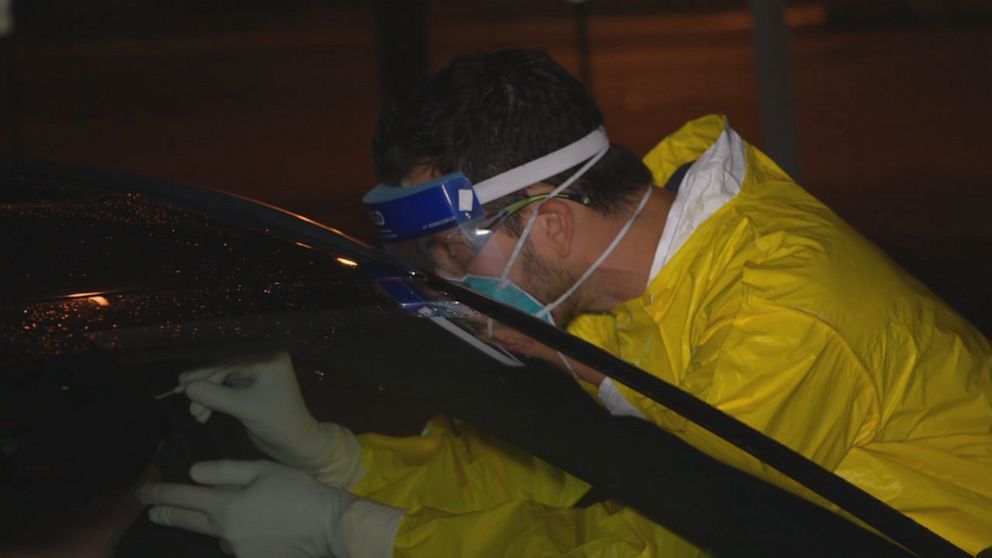
While efforts to expand testing have ramped up, for some Americans, the wider availability is too little, too late.
In New York, Samantha Northart began feeling sick on March 22. There was a “pain throughout my body that I’ve never felt with any other type of sickness or flu,” she told “Nightline” in a video diary. “Then I got the day-five loss of smell.”
Northart knew she had been in contact with someone who had tested positive for the virus, so after registering with the health department five days into her symptoms, she reached out to a nurse at her primary care doctor’s office to find out about getting tested there.
“I talked to them, explained my symptoms and my timeline, and the nurse spoke with the doc,” Northart said. “[They] came back and said, ‘We’re calling you a presumptive positive… Sorry, there is no access to testing right now. Please don’t go to the hospital unless you are having trouble breathing.’”
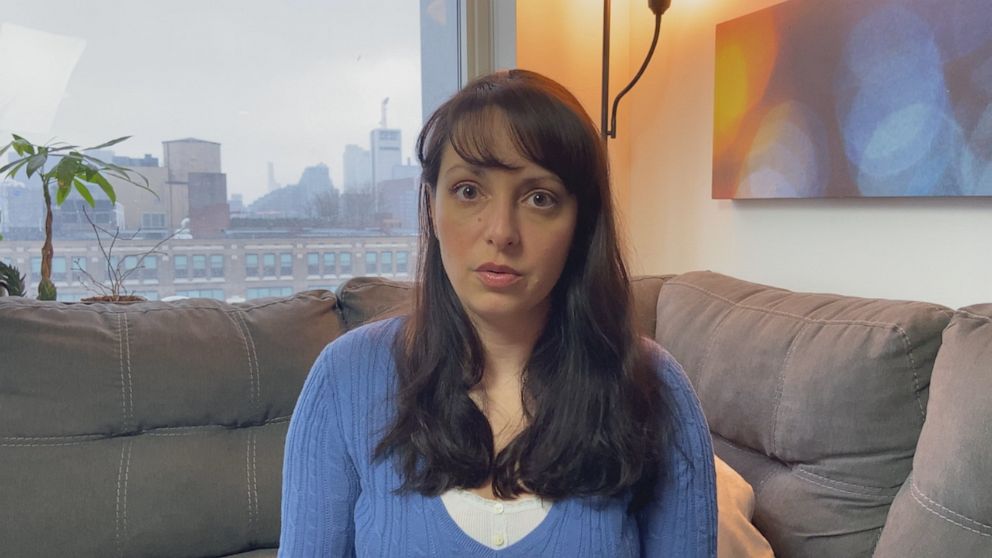
By her ninth day of symptoms, Northart’s condition had worsened. She called the health department a second time to seek a test.
“On April 1, I nearly went to the hospital,” she said. “The gentleman I spoke to said I should have been triggered to the front of the line… He said, ‘You should hear from somebody soon.’ I went on the website and registered myself there as well.”
Ultimately, Northart’s efforts were futile — she was never able to obtain a test.
“It is really scary to have something that could kill someone else … and not know if you could still spread it to them,” Northart said.
Even frontline workers are having trouble getting reliable, rapid tests for themselves. The New York City Fire Department (FDNY) is at the epicenter of the country’s outbreak. Yet, testing for the coronavirus among its ranks is inadequate, according to Gerard Fitzgerald, president of the Uniformed Firefighters Association.
“As far as testing is concerned, I don't think we're catching up,” Fitzgerald told “Nightline.” “Still, to this day, we're over a month into this now and we still have no ability to get rapid testing with rapid results.”
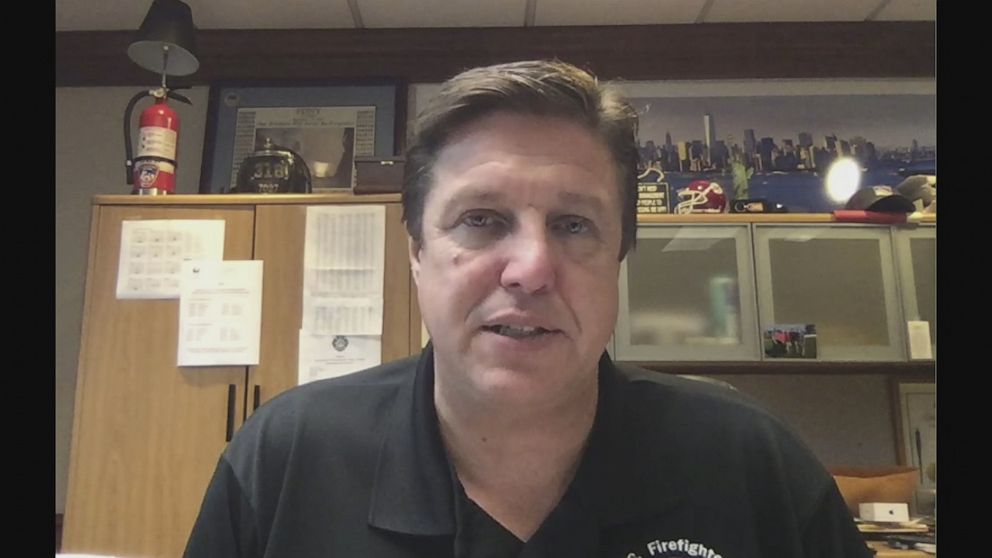
At least 708 members of the FDNY have tested positive and five have died from COVID-19, Fitzgerald said.
“I've heard that rapid result testing is available right now and it has been for more than a week, although we haven't gotten it,” he said. “Any day that we wait longer for that is another firefighter that may bring it home to his family or bring it into the firehouse. And I just find that very unacceptable.”
As the country continues to struggle with the pandemic, it’s becoming increasingly evident that testing — both for the virus and its antibodies — may be one of the keys to fully reopening the economy. Trump said over the weekend that he’d like to begin reopening by May 1.
Dr. Anthony Fauci, a member of the White House coronavirus task force and the nation’s top infectious disease expert, said on Sunday that they are “hoping, by the end of the month, we can safely and cautiously start pulling back on” the mitigation measures.
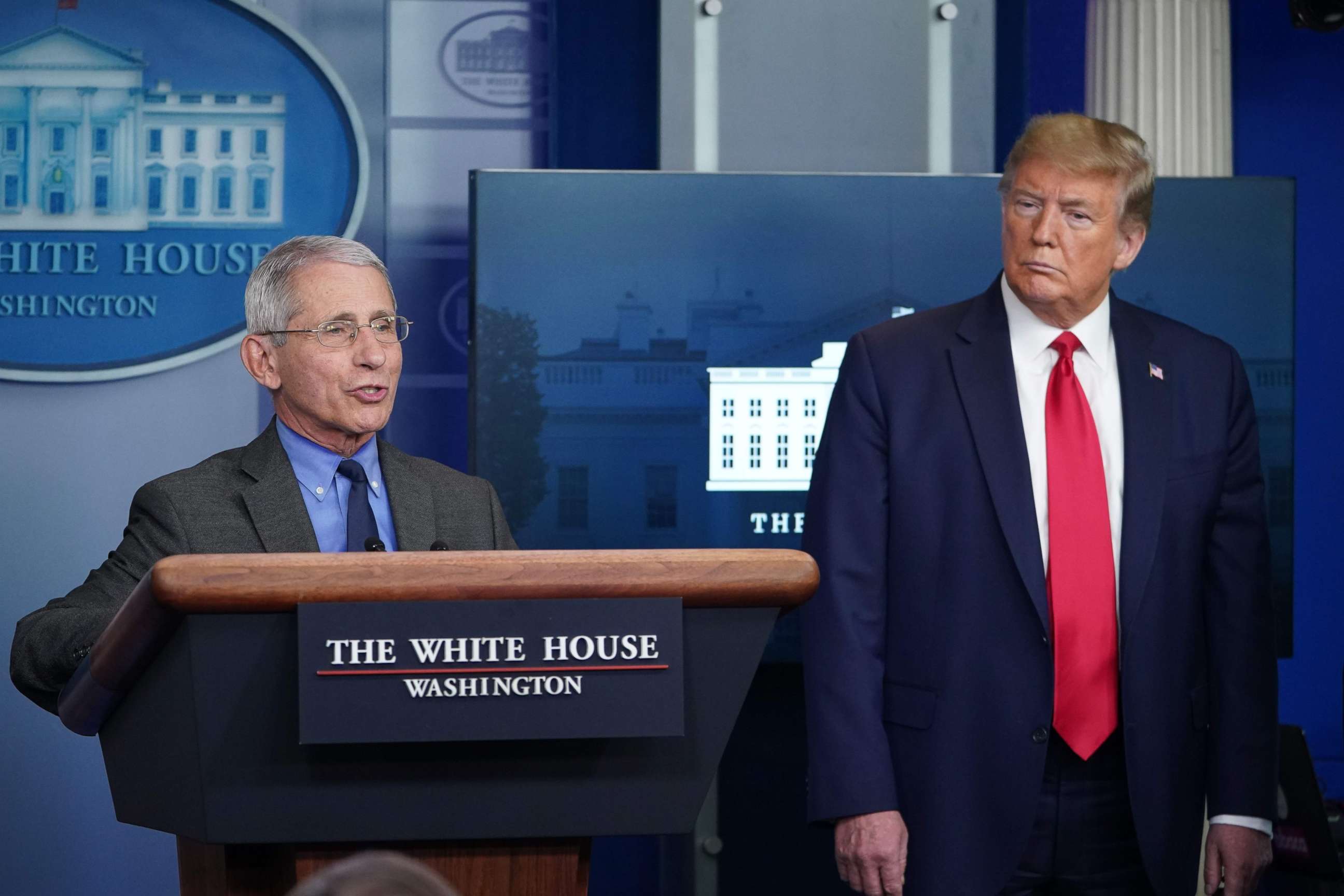
“If so, do it,” he said. “If not, then just continue to hunker down.”
Experts warn that rushing to jumpstart the U.S. economy without widespread mass testing could undo the recent gains that have helped flatten the curve.
Dr. Patrice Harris, president of the American Medical Association, says that policy decisions going forward will have to be based on science and evidence.
“One critical piece of this is testing capacity. The diagnostic tests that show us who is actively infected with COVID-19. But also, we are eagerly awaiting those antibody tests, so that we can know who has been infected and may have some immunity, at least for the time being,” she told “Nightline.”
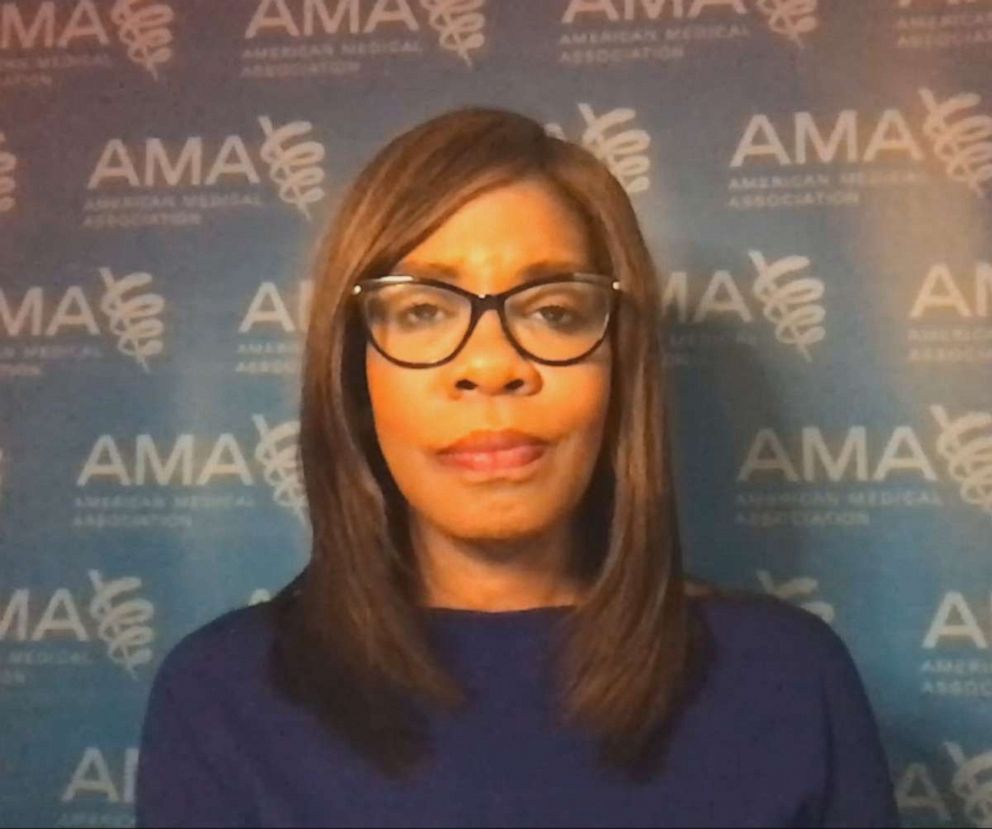
Harris said that since the crisis began in the U.S., testing has fallen behind other developed countries.
“We certainly have been behind regarding testing capacity,” Harris said. “We really need an ‘all hands on deck’ effort to get the testing supplies that we need to build up the testing capacity that we require.”
By contrast, South Korea is returning to normal. The country reported its first confirmed case of the coronavirus on Jan. 20, the same day as the U.S.
In South Korea, however, there has been mass testing and intensive contact tracing to help contain the virus. Because of this aggressive approach, the country saw less than 11,000 confirmed cases of the virus and 217 deaths.
The country’s program has been the gold standard worldwide, and South Korea is now sending 600,000 of its state-of-the-art rapid tests to the U.S. at the request of Trump. The tests are expected to arrive tomorrow.
The lack of a nationwide testing program in the U.S. has placed the burden on states and private businesses to fill the gap.
Dr. Iman Bar is a concierge doctor in California who says her schedule is now flooded with COVID-19 house calls.
Over the weekend, Bar and teams from local labs were busy administering tests to first responders. She explained how they use a nasal swab to detect who is currently infected and an antibody test to see which firefighters have already had the virus and built a presumed immunity to it.
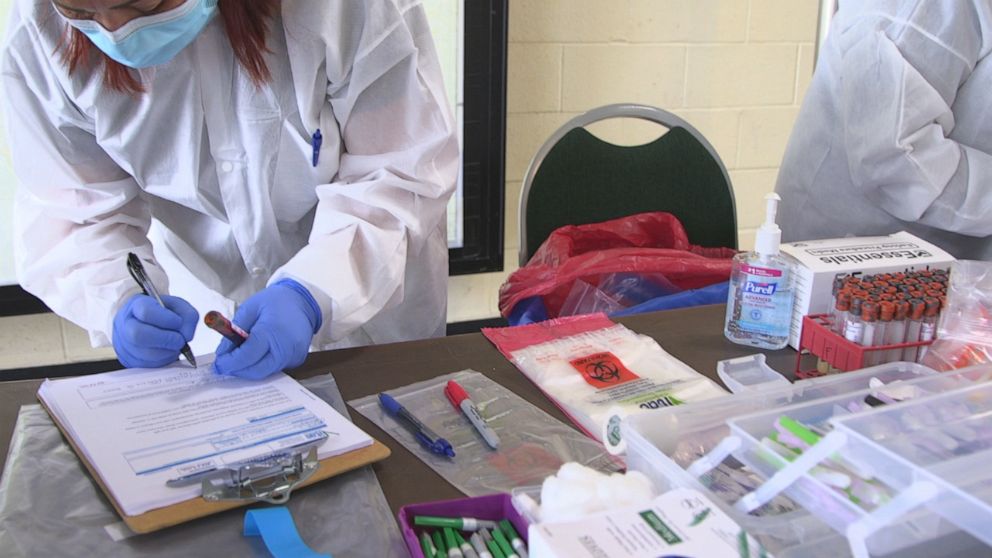
“I see myself as a provider that serves in the community… To give them the peace of mind. To be able to tell them, ‘You’re healthy, that you can go back to work.’ And to be able to be sure that nobody’s spreading the infection as well,” Bar told “Nightline.”
Los Angeles mayor Eric Garcetti applauded the resolve of volunteers who have stepped up during the crisis.
“Like so many places, we have just [been] left on our own,” Garcetti told “Nightline.” “There was no tests that were being delivered from the federal government. The state was trying but they have an entire state of 40 million people. Even our county was busy taking care of the cases that they saw. So we had to step up and figure this out ourselves… It’s been remarkable to see citizens set up.”
Some of those citizens include actor and activist Sean Penn. Through his nonprofit Community Organized Relief Effort (CORE), which was founded in 2010, he’s been helping communities with disaster relief around the world.
Now, his organization is working with the LA Mayor’s office and LA fire department, to help train volunteers to run drive-thru COVID-19 testing facilities in California. It’s a responsibility that often falls on first responders.
CORE opened its first testing site last week.
“We have so much training right now from the LA mayor's office, from the LAFD, and it is our biggest area of focus,” Ann Lee, CEO of CORE, told “Nightline.” “However, I do have to say that because we are not in direct contact at any point with the patients, the spread is very minimal.”
“We have a 6-foot hot zone limit for our volunteers,” Penn added. “They’re in full [personal protective equipment]. They are describing through the window of the car what to do. The closest they get is on hand off, through the window, of the kit. Then, they observe the kit being used, and making sure the people understand how to use it.”
By this past weekend, CORE, in partnership with the city, helped ramp up testing by taking over sites that had previously been operated by LAFD – freeing the first responders to tend to their normal responsibilities.
“We are liberating those firefighters to go out … protect, respond with their paramedics and do the things they have to do,” Penn said. “We should be doing 100,000 tests by [the] first week [of] May, and hoping to expand far beyond that as long as it has to be done.”
Penn hopes to scale volunteer-administered testing across the country.
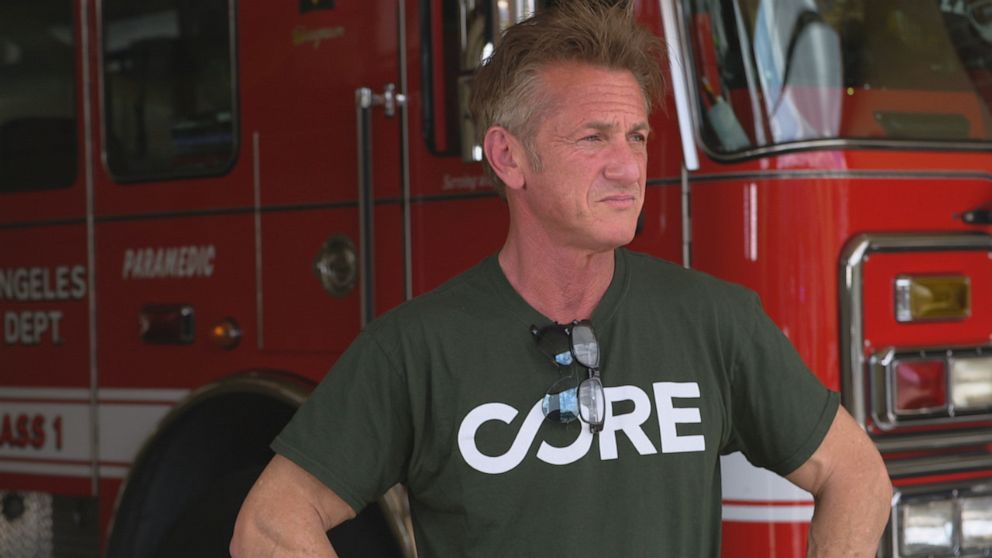
At this rate, it’s the good work of volunteers that may help solve one of the biggest challenges the U.S. faces to getting back to normal.
Back in Malibu, Katz gave “Nightline” two reasons why testing is so important.
“[On an] individual level,” he said, “it allows an individual to change behavior if they know they’re positive — more vigorous self-quarantine, staying away from family members… On a macro level, it’s important in terms of our society being able to reopen in the sense of restaurants, daily lives resuming — some semblance of what they should be.”




